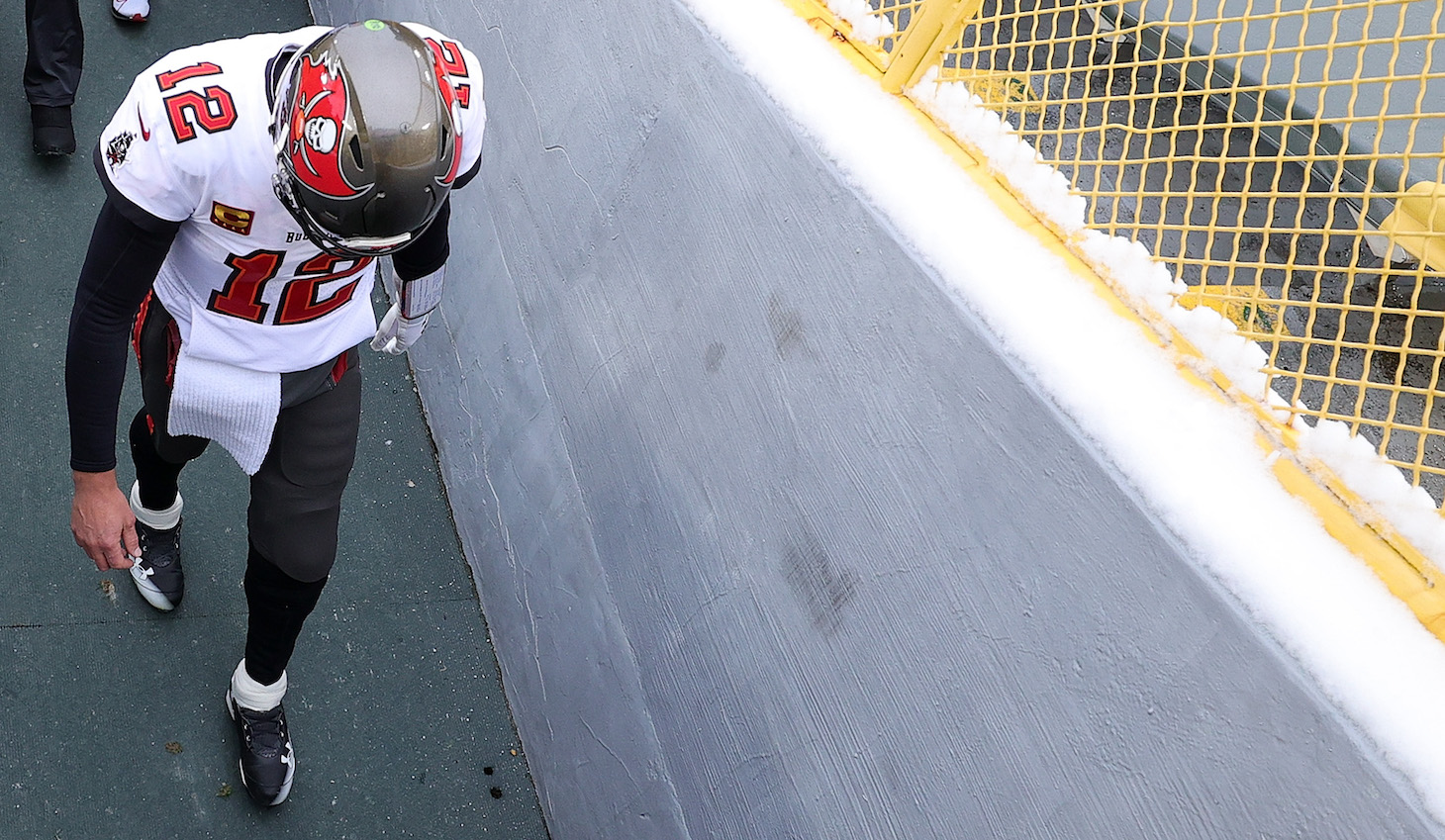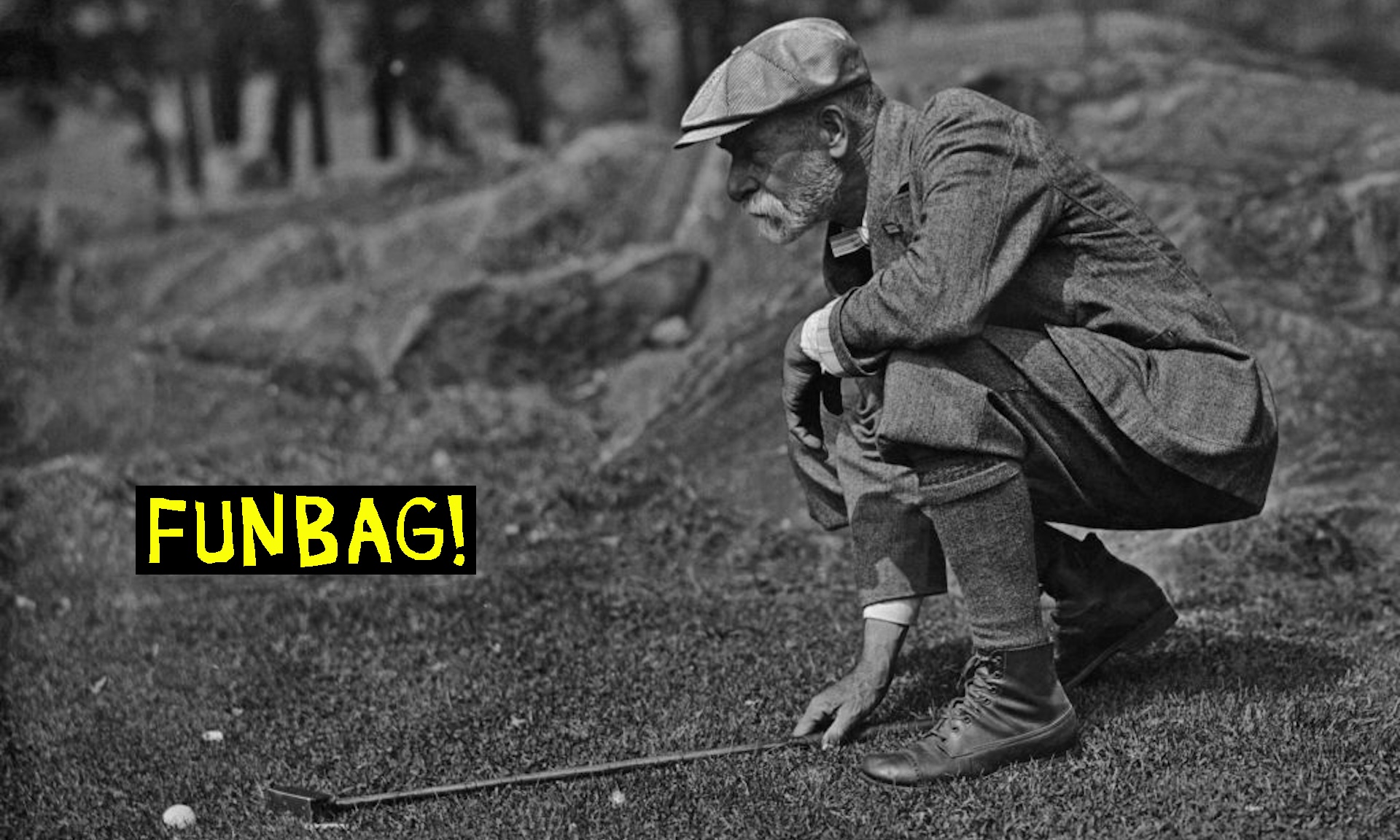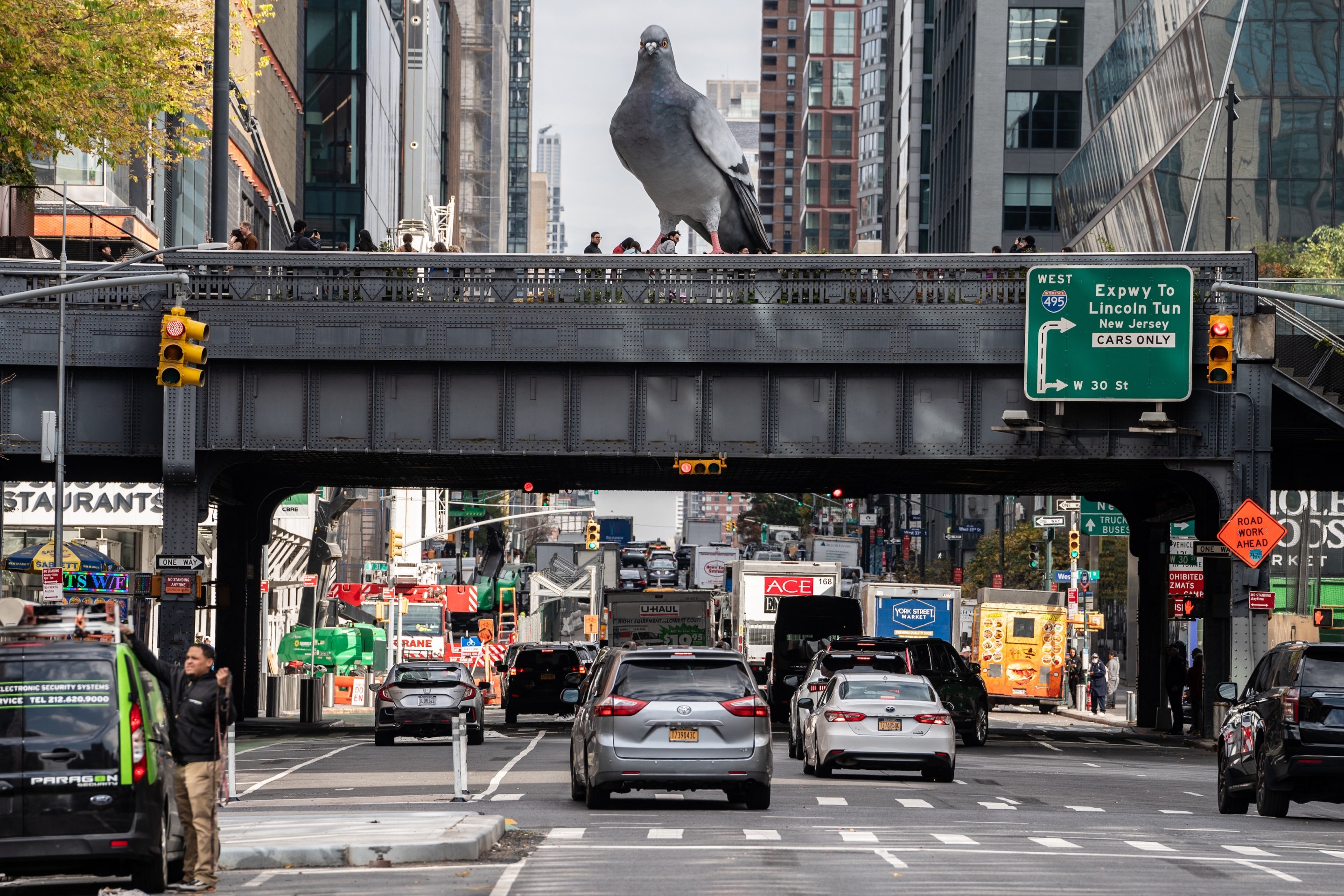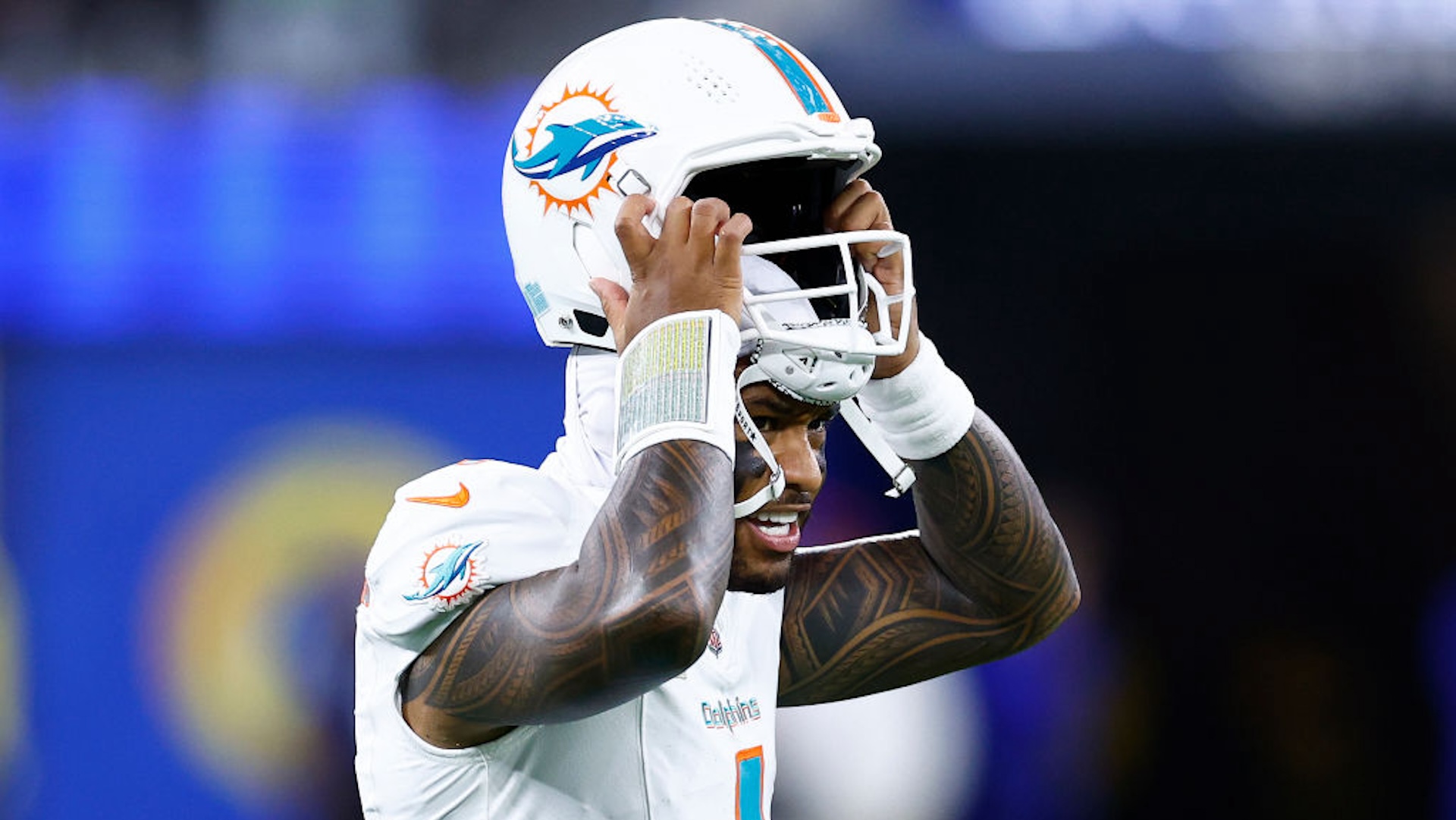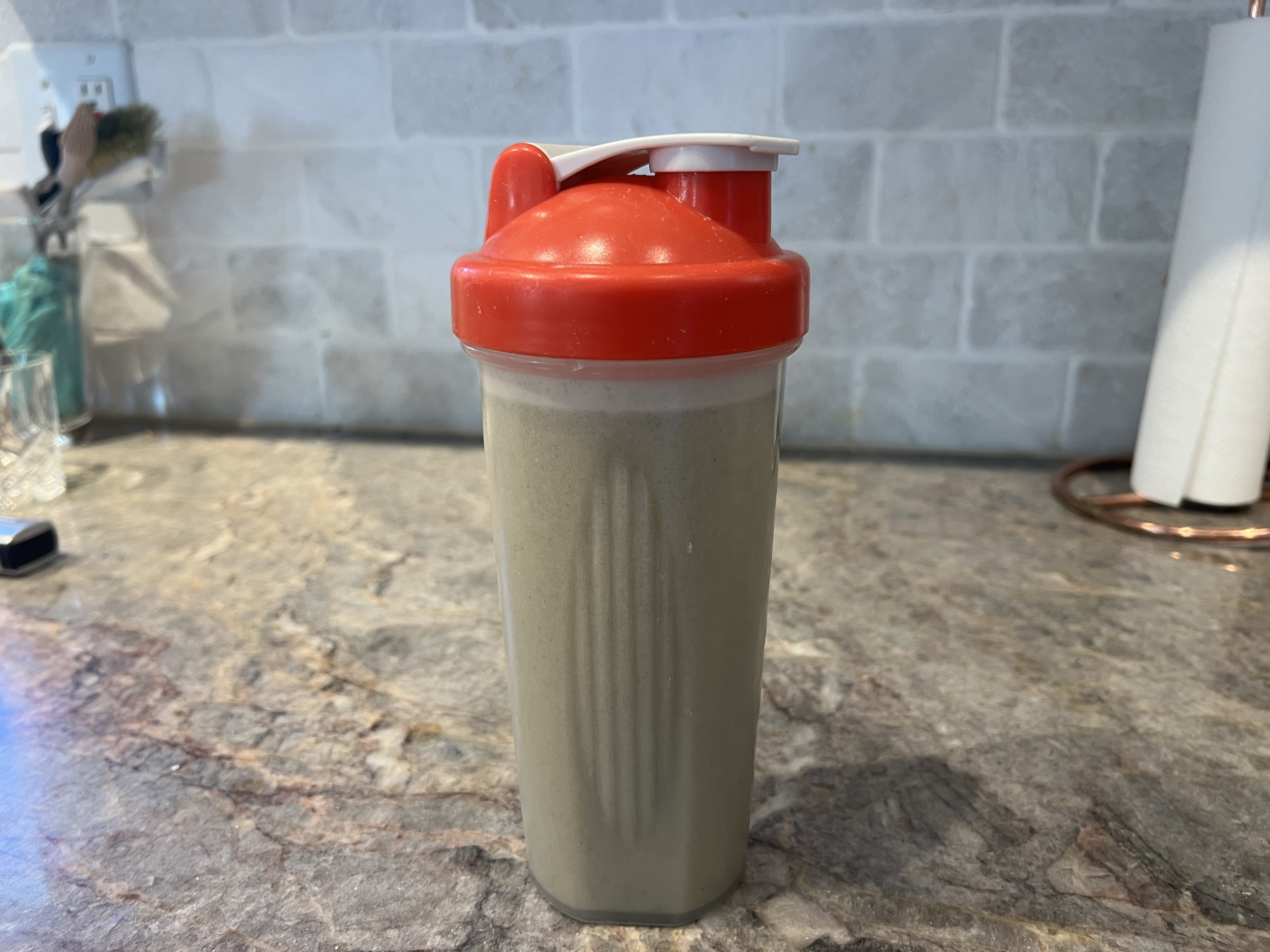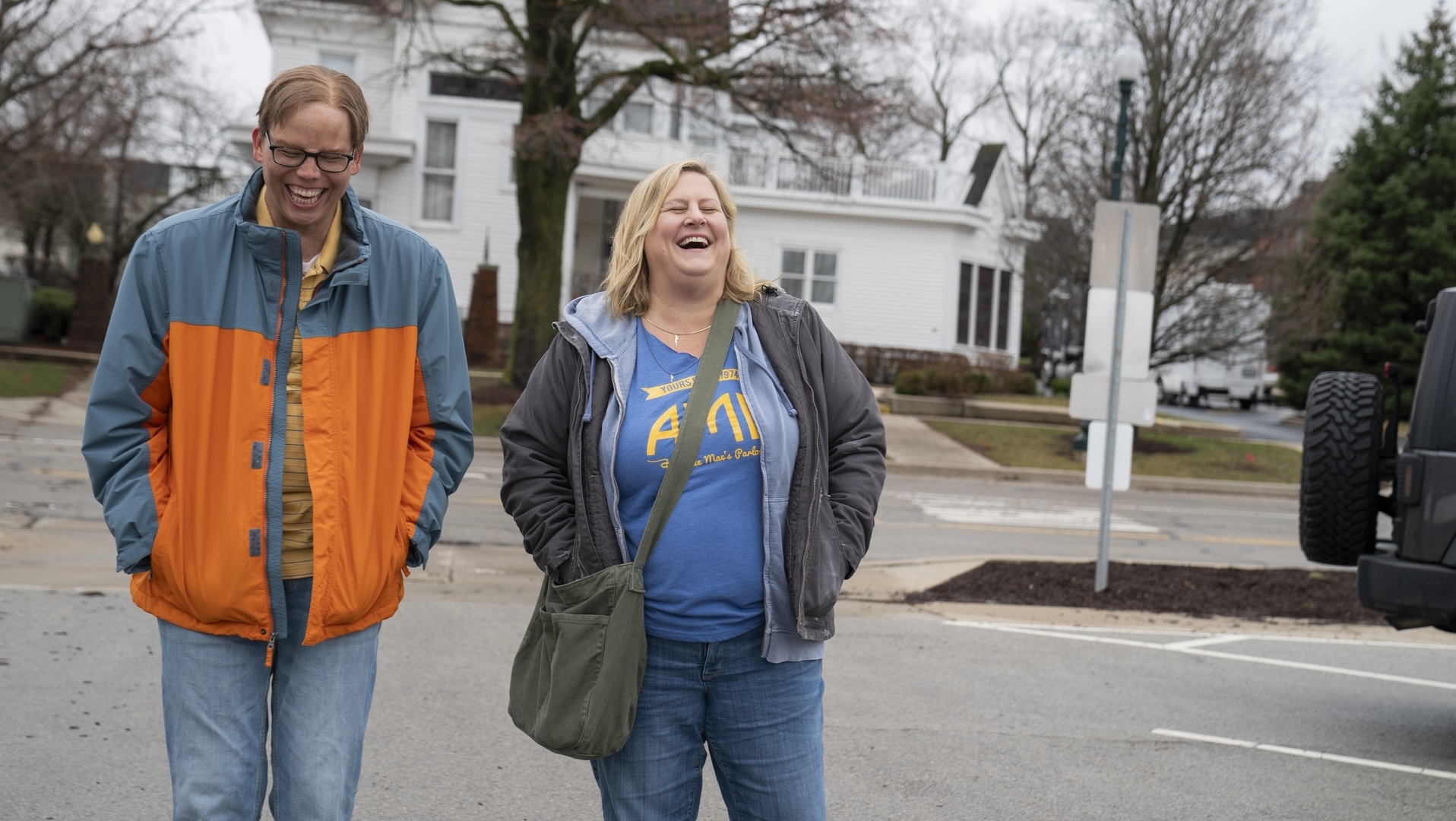I cheered for Tom Brady for the first time ever last weekend. Is that so wrong?
I’d loathed Brady since the first time I ever had to consider him, which came, as I’m guessing it did for most fans, in January 2002 during the New England Patriots’ playoff matchup against the Oakland Raiders, the Tuck Rule Game. Brady got a career-launching break from the referees that night and has whined about every break he didn’t get since. His coach, Bill Belichick, put on dickish, Nixonian airs, down to having a scandal with a “-gate” suffix break on his watch. And throughout their pairing, wickedness triumphed again and again and ... (up to six "again"s). To bastardize a great Kris Kristofferson lyric, hating them was easier than anything I’ll ever do again.
But things are different this year, mainly because Brady consciously uncoupled from Belichick and left for Tampa, and even without the evil overseer has made another Super Bowl. His 10th as a starting quarterback! The NFL has never seen anything like this. I watched the Bucs-Packers game with my teenage son, Eddie, and a longtime friend/Brady hater who I’d watched the Tuck Rule game with all those years ago. We were all born Washington Football Team fans, but had spent some years adrift due to the serial despicableness of ownership. But this season, in hopes of mitigating pandemic blues, we held our nose and jumped back on the bandwagon, and had a blast watching nearly every WFT game together. Perhaps the experience of rooting for an objectively bad organization, and loving it, greased the skids for future deals with the devil. In any case, after Brady's and Tampa Bay’s playoff win over Washington a few weeks ago, wondering which of the remaining teams was worth caring about, I put some thought into it and decided I was done despising the guy. So when the Bucs scored on their opening drive in the NFC Championship, I cheered. My viewing partners got genuinely angry. My son was yelling, “How many rings does he need?” And my buddy quickly googled up a photo of a MAGA hat in Brady's locker to flash in my face. They both wanted an explanation for my change of heart.
The short answer is I’m no longer hating Brady because of some self-reflection and, well, because of Sugar Ray Leonard, Michael Jordan, and Bon Jovi.
As for the long answer, well ... Leonard first. He’s maybe the first athlete I couldn’t stand. I grew up outside Washington, D.C. in the 1970s, when no athlete in the market was more popular than Leonard. His first fame came as part of the greatest Olympic boxing squad of all time, the 1976 USA team. Five American boxers—Leo Randolph, Howard Davis, Michael and Leon Spinks, and Leonard—won gold medals at the Montreal games. Leonard, who took the light welterweight medal, was the goldenest boy of them all. He’d become a media darling even before his first fight just by taping a photo of his teenage girlfriend and their infant son to his sock. I always thought the Spinks brothers deserved at least as much attention, but they didn’t have the show-biz smile (or, in Leon’s case, simply didn’t have as many teeth) or PR skills Leonard had.
I was sick of Leonard by the time he returned home with the medal around his neck. He continued to be overexposed locally; there was a press conference to announce when he’d hold a press conference to announce whether he’d turn pro or quit fighting. He went pro, and every fight was treated like a Super Bowl by hometown media. Leonard went on to have as amazing a career as any fighter of his generation, becoming the first boxer ever to earn $100 million dollars while ducking nobody and beating everybody. I rooted against him from start to finish. Especially when he fought Marvin Hagler in 1987. Hagler was an undefeated machine and my favorite boxer of the era. I figured there was no way Hagler, a central casting brawler, could lose to anybody seemingly as pampered and pretty as Leonard. Or as inactive: Leonard hadn’t fought in three years when he got in the ring with Hagler. When Leonard got the decision in their fight, I was not only crushed, I would have bet big money that the fix was in. (Hagler had the same trouble accepting the decision; he moved to Italy to become a spaghetti Western film star and never fought again.)
But I reconsidered Leonard as I got older. I wrote a story about Charles Mooney, another D.C. fighter and teammate of Leonard’s on the 1976 USA team. And Mooney, who won a silver medal in Montreal, gushed not only about Leonard’s athletic ability, but about his work ethic and leadership-by-example as their squad prepared for the Games. None of Leonard’s wins were accidental or attributable to his celebrity or looks or that photo taped to his sock, Mooney counseled me. Leonard earned everything he got. And in more recent years, I went on Youtube and watched all Leonard’s big fights. Good god, have those battles aged well. With every Leonard video, particularly his 14th-round KO of previously undefeated and allegedly unbeatable Tommy Hearns in 1981, I felt more like an idiot for not taking stock of his greatness. What heart this guy had! Reviewing the fights, I had to accept that my rooting against Leonard had caused me to distort reality. Damned if he didn’t beat Marvin Hagler, fair and square.
Then there was Michael Jordan, who grew up in Wilmington, N.C., the same town in which Sugar Ray Leonard was born. I rooted against Jordan at first blush for one reason: He played for North Carolina, the team that I despised most throughout my childhood. I couldn’t stand Tar Heels coach Dean Smith, who was as boring as Belichick and also just won-won-won. As a freshman, Jordan and UNC defeated my second-most beloved college hoops squad, the Georgetown Hoyas with the great Patrick Ewing, in the 1982 NCAA final on Jordan’s game-winning jumper. UNC also destroyed my favorite, the Maryland Terps, whenever the game mattered. I’ve gone through life sure that Maryland’s Len Bias was better than Jordan and would’ve proved it if he’d gotten a chance. But UNC got upset by Duke in the semifinals of the 1984 ACC tournament, preventing the top-seeded Heels and Jordan from facing eventual tourney champion Bias and the second-seeded Terps in the title game. And then Bias died just after the 1986 NBA draft, before ever suiting up for the Boston Celtics and facing Jordan in the pros.
My loathing for Jordan had such legs that I rooted against every Chicago Bulls team he played on during his dynastic reign. And in 1994, I went to Hoover, Ala., to see Jordan play for the Birmingham Barons while he was on a sabbatical from basketball and giving baseball a try. I’d hooted as he dropped a fly ball and got caught stealing. I couldn’t even bring myself to cheer for the Washington Wizards when Jordan came out of retirement to play for the hometown team. I giggled when his run in D.C. ended horrendously, with Jordan in a blood feud with majority owner Abe Pollin that cost him his stake in the Wizards after he’d given the moribund franchise two seasons of home sellouts. Good riddance, I thought. And once he was run out of town, he was out of mind.
Until, that is, early in the pandemic, when I screwed up and, like much of the country, watched the documentary series The Last Dance. Every one of its 10 parts made me fall harder for Jordan and feel dumber for letting his collegiate besting of Bias and Ewing make me miss out on the fun that non-haters had. The footage of Jordan’s first rock-the-cradle dunk, which he debuted at UNC in 1984 in a regular season game against my Terps in College Park, hit me particularly hard. I’d watched that game live! How could I have gotten no joy out of such a spectacular deed in the moment?
The portions of the documentary that mulled Jordan’s baseball foray in Birmingham made me feel even more boorish. Here was the most famous and maybe the richest athlete in the world spending a summer in the sticks, traveling by bus, just hoping to live out a boyhood fantasy. Not long after watching the film, I came across the ticket stub from a Birmingham Barons game, alongside a pile of vintage stubs from Aerosmith and Lynyrd Skynyrd concerts. It was a very simple stub, like you’d get from the neighborhood movie theater, not a big-time sporting event. What kind of loser would root against Jordan there? Well, a loser like me.
Then there’s Bon Jovi (and I promise this'll make sense). The New Jersey hair band was a punchline for rock critics from their first album’s 1984 release, with frontman Jon Bon Jovi dismissed as a remedial Springsteen whose tunes were only fit for the great stonewashed. But he ignored the destructive criticism and kept cranking out mindless arena rock anthems with low-aiming lyrics and impossibly memorable choruses, and selling out tour after tour. I was assigned to review a Bon Jovi concert in 2005, and went fully expecting to find the headliner easily mockable. But I clearly remember having an epiphany about my wrongness while all 20,000 folks around me screamed out every word to one of those decades-old anthems, “Living On A Prayer,” as if life couldn’t get better. That dumb-ass ditty still meant the world to all of them, and they were all having more fun than me. By the end of the tune I was shrieking along, too. There was no longer any mileage in bashing Bon Jovi.
I mulled the Leonard-Jordan–Bon Jovi trinity for deeper meaning after Brady led Tampa to its playoff win over Washington. One takeaway was that I should accept and take stock of Brady’s blatant greatest-ness while he’s still in the game, instead of waiting a few decades to accept it, as I had with Leonard. Another was that, as I should have with Jordan, I plan to never again let the fact that Brady did it while playing for a team I detested cause me to deny his historical, won't-be-seen again pre-eminence. And, finally, I admitted to myself that Brady had worn me out as surely as Bon Jovi wore out anybody who pretended crooning the words to “Living On a Prayer” with 20,000 people wasn’t fun as hell.
A saner fan might have been able to despise athletes, or even rock stars, while simultaneously appreciating their greatness. I'm still not that fan.
So, in conclusion, I plan on rooting for Brady in Super Bowl 55. And, no, I can’t defend the MAGA hat.
